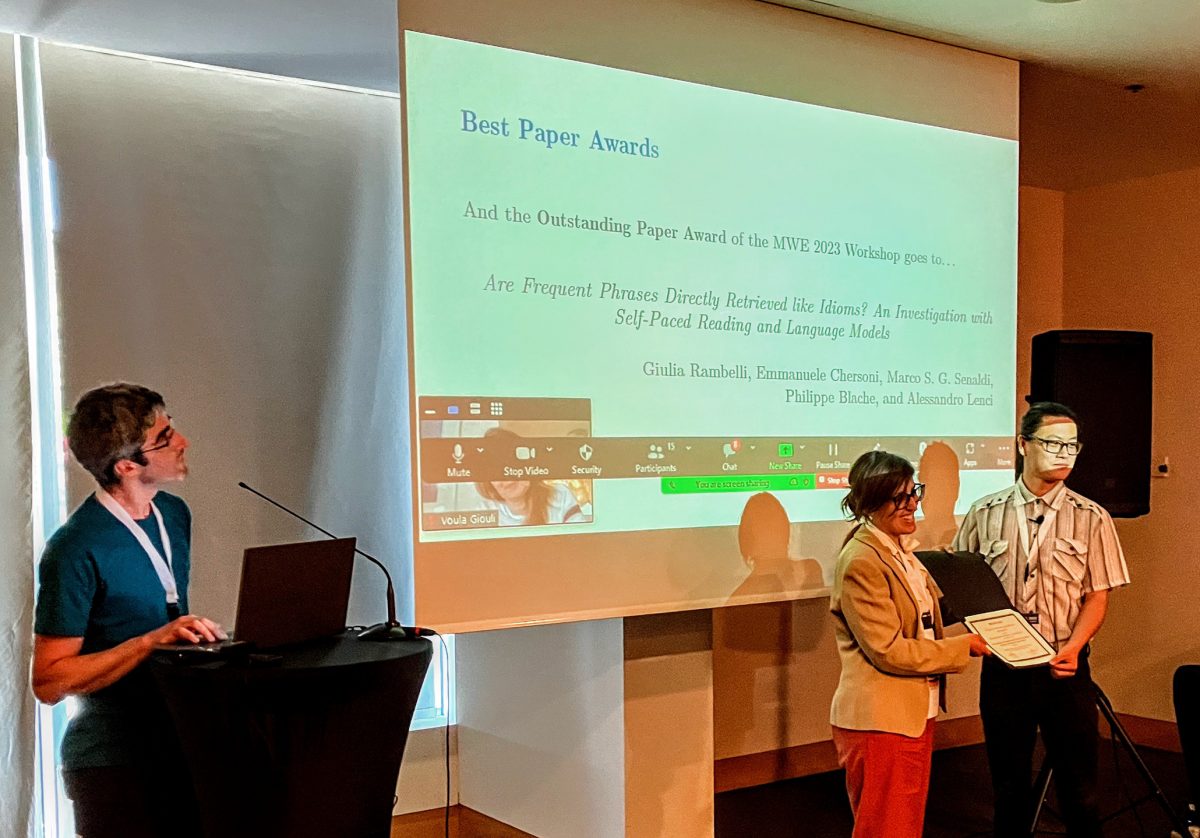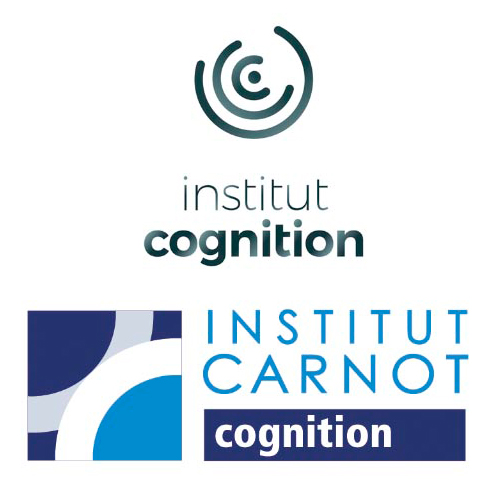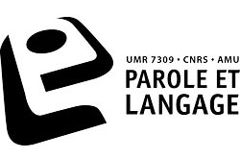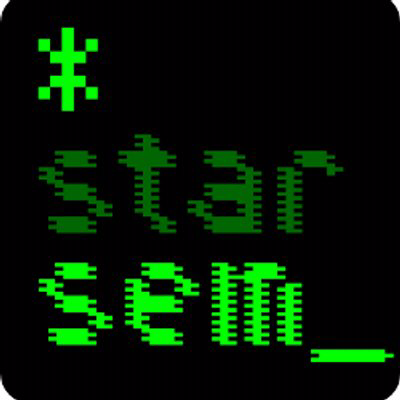
Giulia Rambelli, former LPL doctoral student, has just received the Outstanding Paper Award for her scientific paper entitled “Are Frequent Phrases Directly Retrieved like Idioms? An Investigation with Self-Paced Reading and Language Models” of which she is first author, along with Emmanuele Chersoni, Marco S. G. Senaldi, Philippe Blache and Alessandro Lenci. The award was presented on May 6 at the 19th Workshop on Multiword Expressions held during the EACL 2023 conference in Dubrovnik, Croatia. The publication is closely related to Giulia’s thesis carried out under the direction of Philippe Blache and Alessandro Lenci and defended in September 2022.
Currently, Giulia has joined the ABSTRACTION project team which is funded by the European Research Council (ERC) and coordinated by Marianna Bolognesi at the University of Bologna, Italy.
Congratulations, Giulia!
Abstract:
An open question in language comprehension studies is whether non-compositional multiword expressions like idioms and compositional-but-frequent word sequences are processed differently. Are the latter constructed online, or are instead directly retrieved from the lexicon, with a degree of entrenchment depending on their frequency? In this paper, we address this question with two different methodologies. First, we set up a self-paced reading experiment comparing human reading times for idioms and both high-frequency and low-frequency compositional word sequences. Then, we ran the same experiment using the Surprisal metrics computed with Neural Language Models (NLMs). Our results provide evidence that idiomatic and high-frequency compositional expressions are processed similarly by both humans and NLMs. Additional experiments were run to test the possible factors that could affect the NLMs’ performance.

We are pleased to announce that Alain Ghio, research engineer at the LPL, has just obtained funding for the research project “Processing platform for atypical speech (PATY)”, under the coordination of Jérôme Farinas from the Institute of Research in Computer Science of Toulouse (IRIT). This project was submitted as part of a call for proposals from the Carnot Cognition Institute of which the LPL is a member. It aims to make accessible the latest research and development results around atypical speech (pathologies, regional accents, etc.) and to create a tool combining several methods of analysis and automatic processing. The platform produced could then be valued by the research community specializing in cognition and speech processing as well as in various health or industrial sectors.













